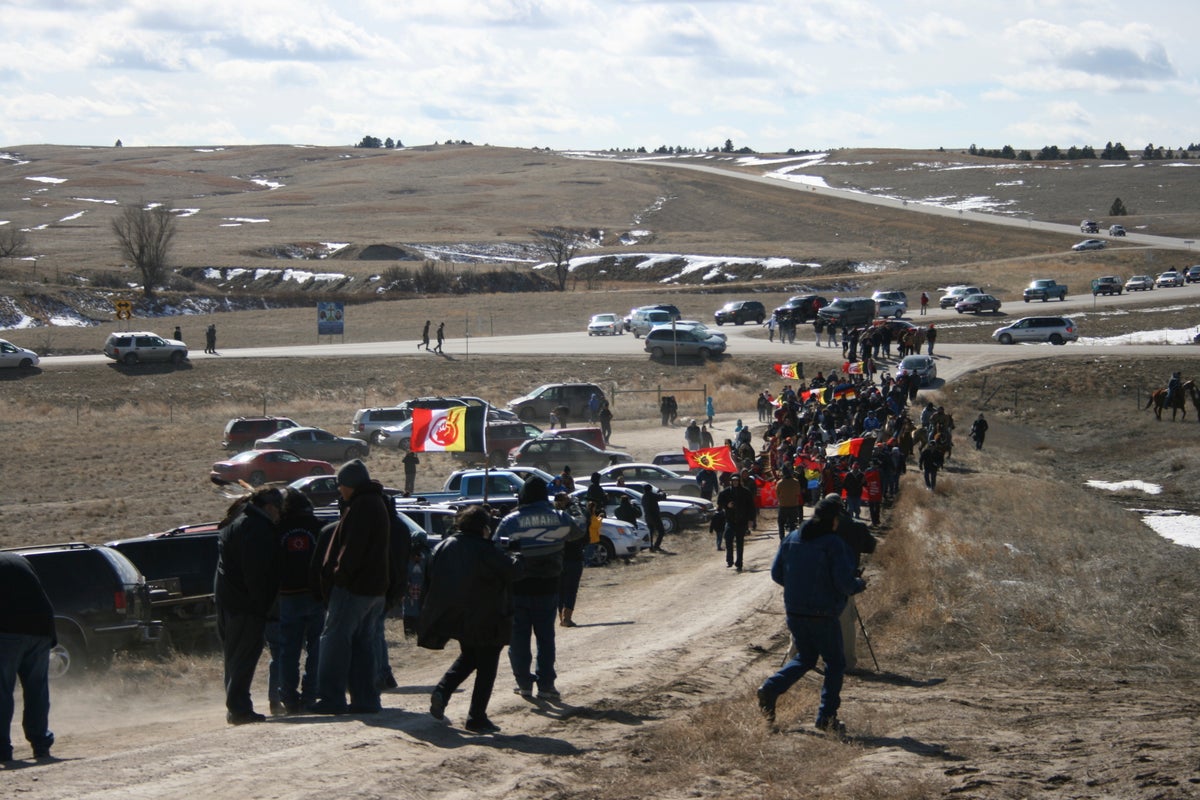
A bill to preserve the site of the Wounded Knee massacre — one of the deadliest massacres in U.S. history — cleared the U.S. House of Representatives on Wednesday.
The Wounded Knee Massacre Memorial and Sacred Site Act, introduced by Republican U.S. Rep. Dusty Johnson of South Dakota in May, passed the House by voice vote. The Senate is considering companion legislation.
More than 200 Native Americans — including children and elderly people — were killed at Wounded Knee in 1890. The bloodshed marked a seminal moment in the frontier battles the U.S. Army waged against tribes.
The Oglala Sioux and Cheyenne River Sioux Tribes joined together last year to purchase about 40 acres around the Wounded Knee National Historic Landmark in South Dakota to ensure the area was preserved as a sacred site. Leaders of both tribes testified in support of the House bill, which would put federal protections on the land on the Pine Ridge Indian Reservation.
Oglala Sioux Tribe President Frank Star Comes Out did not immediately return a phone message seeking comment on the bill’s passage. In a previous statement, he said: “We must remember the sacrifices our ancestors have suffered for us. What happened at Wounded Knee is a reminder that we as a Oyate (people) have succumbed incredible odds to survive, so we must honor our ancestors by preserving the land for future generations to come.”
A phone call to the Cheyenne River Sioux Tribe rang unanswered Wednesday. In a previous statement, Cheyenne River Sioux Chairman Ryman LeBeau and Wounded Knee survivor descendants Manny and Renee Iron Hawk said, “We stand in strong solidarity in memorializing this sacred site, that will be honored as such forever more.”
In a speech on Monday on the House floor, Johnson described his trip to the Wounded Knee site in June, when he visited with descendants, including an elder whose grandmother survived the massacre.
“These are real people. These are real places. These are not ancient tales of a distant land," Johnson said.
The site has figured prominently in Indigenous people’s struggles with the U.S. government. A private citizen, James Czywczynski, purchased the property in 1968. His family operated a trading post and museum there until 1973, when American Indian Movement protesters occupied the site, destroying both the post and Czywczynski's home.
The 71-day standoff that left two tribal members dead and a federal agent seriously wounded led to heightened awareness about Native American struggles and propelled a wider protest movement.







